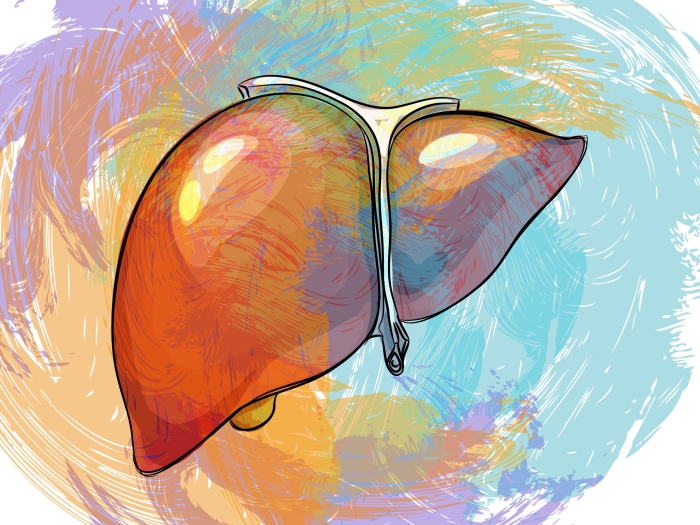An elimination diet designed to relieve discomfort in IBS patients did more than ease physical symptoms, a new study finds. It also improved quality of life.
7:00 AM
Author |

Living with a gut disorder such as irritable bowel syndrome can be difficult.
MORE FROM THE LAB: Subscribe to our weekly newsletter
While the physical symptoms can be a nightmare for patients, the emotional toll is often just as devastating. Patients with IBS show higher levels of depression and anxiety compared with people without the disorder, one recent study found.
University of Michigan researchers think they can offer a recipe for hope: the low FODMAP diet, an elimination diet that removes carbohydrates assumed to prompt IBS symptoms.
U-M gastroenterologists Shanti Eswaran, M.D., and William D. Chey, M.D., recently studied the effects of the low FODMAP diet on IBS patients' health-related quality of life, anxiety and depression levels, work productivity and sleep quality.
Their findings, published in Clinical Gastroenterology and Hepatology, are promising.
"We found that patients on the low FODMAP diet were more than twice as likely to have improvement in their quality of life than those who were randomized to the usual dietary advice for IBS patients," says Eswaran, who is also a clinical assistant professor in the department of internal medicine at Michigan Medicine.
Although Eswaran's prior research has proved that IBS patients following the low FODMAP diet will see improvements in abdominal pain and bloating, she notes that those aren't always the factors that motivate patients to seek medical help.
"Patients really come to see us when their symptoms impact what they are doing," she says. "They will tell us, 'I can't work because of my symptoms, or I don't feel comfortable going out shopping or on a road trip because of my symptoms.'
"It's really when IBS starts to impact their quality of life and their goals that they really start to seek care."
Dietary changes bring results
Eswaran and Chey conducted a prospective, single-center, single-blind trial of 84 adults with IBS and diarrhea.
SEE ALSO: Clinical Trial Demonstrates Success of Low FODMAP Diet
Participants were randomly split into two groups. One group was placed on a low FODMAP diet, and the other adhered to mNICE, a modified diet recommended by the National Institute for Health and Care Excellence (part of the Department of Health in the United Kingdom).
The mNICE diet, Eswaran says, is essentially a common-sense diet that encourages patients to avoid foods they think trigger their symptoms. It also advises them to eat smaller meals throughout the day (instead of two or three large meals) and avoid excess alcohol and caffeine.
The low FODMAP diet, which is a bit more complicated, excludes many sugars and other carbohydrates found in wheat, milk and other dairy products, certain fruits and vegetables, garlic, onions and sugar substitutes.
U-M researchers assessed IBS-related quality of life, psychosocial distress, work productivity and sleep quality at the beginning and end of a four-week period.
Ultimately, the group that followed the low FODMAP diet fared better. At four weeks, those patients had a larger mean increase in their IBS quality-of-life score than patients on the mNICE diet.
Likewise, their anxiety scores, based on the Hospital Anxiety and Depression Scale, decreased. And activity impairment, based on the Workplace Activity Impairment Questionnaire, was also significantly improved with the low FODMAP diet compared with mNICE.
Eswaran thinks improvements in key IBS symptoms such as pain and bloating are the main quality-of-life benefits of the low FODMAP diet.
Eswaran also hypothesized that IBS patients on the low FODMAP diet may have experienced less anxiety because their physical symptoms improved — which led them to feel better overall.
Dietitians key to adherence, wellness
While the study results are highly encouraging, Chey points out a few caveats that IBS patients should know before trying the low FODMAP diet.
SEE ALSO: An Evolving 'Holistic' Approach to Treat IBS
Most important: a dietitian's help to navigate the complexities that the shift requires.
"The low FODMAP diet should be done in three phases," says Chey. "There is a two- to six-week elimination phase that is followed by a reintroduction phase and then a maintenance phase."
Chey, director of U-M's GI Physiology Laboratory and director of the Digestive Disorders Nutrition & Lifestyle Program, says many gastroenterologists in the United States recommend dietary changes to their patients with conditions such as IBS.
But few, he notes, incorporate the services of a registered dietitian. That's often due to limited resources or a lack of access to registered dietitians with adequate training in nutritional counseling for GI disorders.
"For this reason, we created a comprehensive low FODMAP educational website (myginutrition.com) and a training program for dietitians with an interest in caring for patients with digestive and liver disorders," says Chey.
The training sessions, which he plans to hold annually, provide dietitians and other health care professionals with a foundation in the pathophysiology, diagnosis and medical management of common — as well as complex — gastrointestinal diseases and disorders. The course will also train enrollees to appropriately assess, implement and monitor a nutritional care plan.
New research planned
Eswaran plans to create a road map for effectively carrying out the phases of the low FODMAP diet. She then hopes to share a standard of best practices for implementing the diet with other medical institutions, gastroenterologists and health care providers.
More research, meanwhile, is underway.
"We're doing a trial now looking at the reintroduction phase," she says. "Our goal is to try and standardize the best approach to give dietitians an algorithm or a plan to reintroduce foods back into a patient's diet. Right now, it's pretty much trial and error."

Explore a variety of healthcare news & stories by visiting the Health Lab home page for more articles.

Department of Communication at Michigan Medicine
Want top health & research news weekly? Sign up for Health Lab’s newsletters today!





